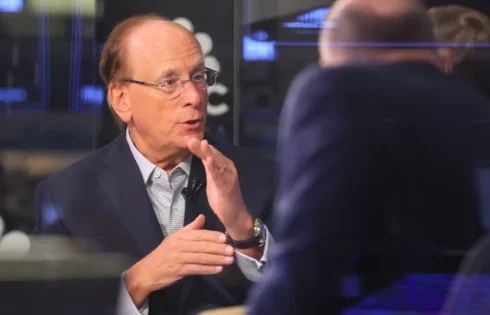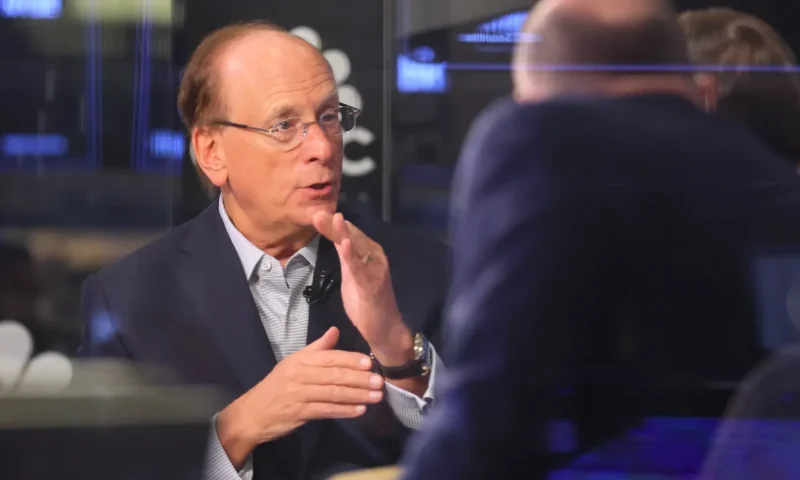
BlackRock CEO Larry Fink told CNBC on Friday that he thinks the U.S. economy has weakened to the point of growth possibly turning negative.
“I think we’re very close, if not in, a recession now,” Fink said on “Squawk on the Street.”
Fears of an economic slowdown have risen sharply since President Donald Trump unveiled widespread tariffs last week, sparking a sell-off in the stock market. Trump on Wednesday announced that he was pausing some of those import levies for 90 days, but that move has not been enough to restore confidence in the economy, Fink said.
“I think you’re going to see, across the board, just a slowdown until there’s more certainty. And we now have a 90-day pause on the reciprocal tariffs — that means longer, more elevated uncertainty,” Fink said Friday.
Surveys of consumers and business leaders have shown weakening sentiment in recent months. However, other pieces of economic data like job growth and retail sales have held up better. Fink said consumers may have been stocking up on goods ahead of the threatened tariffs, which could be masking some underlying economic weakness.
Despite his concerns, Fink said he did not think the U.S. was in a financial crisis and he expects “megatrends” in the economy like artificial intelligence would persist.
At an event for the Economic Club of New York on Monday, Fink said that other CEOs also think the U.S. is “probably in a recession.”
Fink’s latest remarks come after BlackRock announced its first-quarter financial results. In a press release Friday morning, the CEO commented that “uncertainty and anxiety about the future of markets and the economy are dominating client conversations.”
The asset management giant’s financial results were mixed. BlackRock reported $11.30 in adjusted earnings per share for the first quarter, above the $10.14 expected by Wall Street analysts, according to LSEG. However, $5.28 billion in revenue was short of the $5.34 billion consensus estimate.
On the assets front, BlackRock reported $84 billion in net inflows during the quarter and ended March with nearly $11.58 trillion under management.
Shares of the firm rose 2.3% on Friday.

